Simplifying the Pennsylvania Rules of Intestate Succession
Who gets your property if you die without a last will and testament in Pennsylvania? This is legally referred to equally dying intestate. Each state has enacted an intestate succession statute to address this issue. These statutes are government formulated and mandated estate plans. If there is no Will, these statutes how all of the deceased's probate property will be distributed. Hither is a link to Pennsylvania's statute for reference.
The answer to this inquiry depends which family unit members or relatives survived the person who died (the decedent) without a Will. This page seeks to explain in clear terms with unproblematic examples what happens to a person's probate avails if he or she dies intestate in Pennsylvania.
Earlier the examples begin, remember, property that is held joint with the right of survivorship or that has a casher designation will non follow the intestacy statute. Each example below has a pictograph example, just click on the box to the right. As always, delight contact united states of america for a gratuitous consultation if you accept any questions.
Fairly Directly Forward Examples
We start with some adequately straightforward examples, then move onto more circuitous family situations at number viii beneath.
one – Husband and Married woman are married, Husband dies with surviving spouse but no surviving parents or children.This is as uncomplicated as it gets. The surviving married woman inherits the entire probate estate.
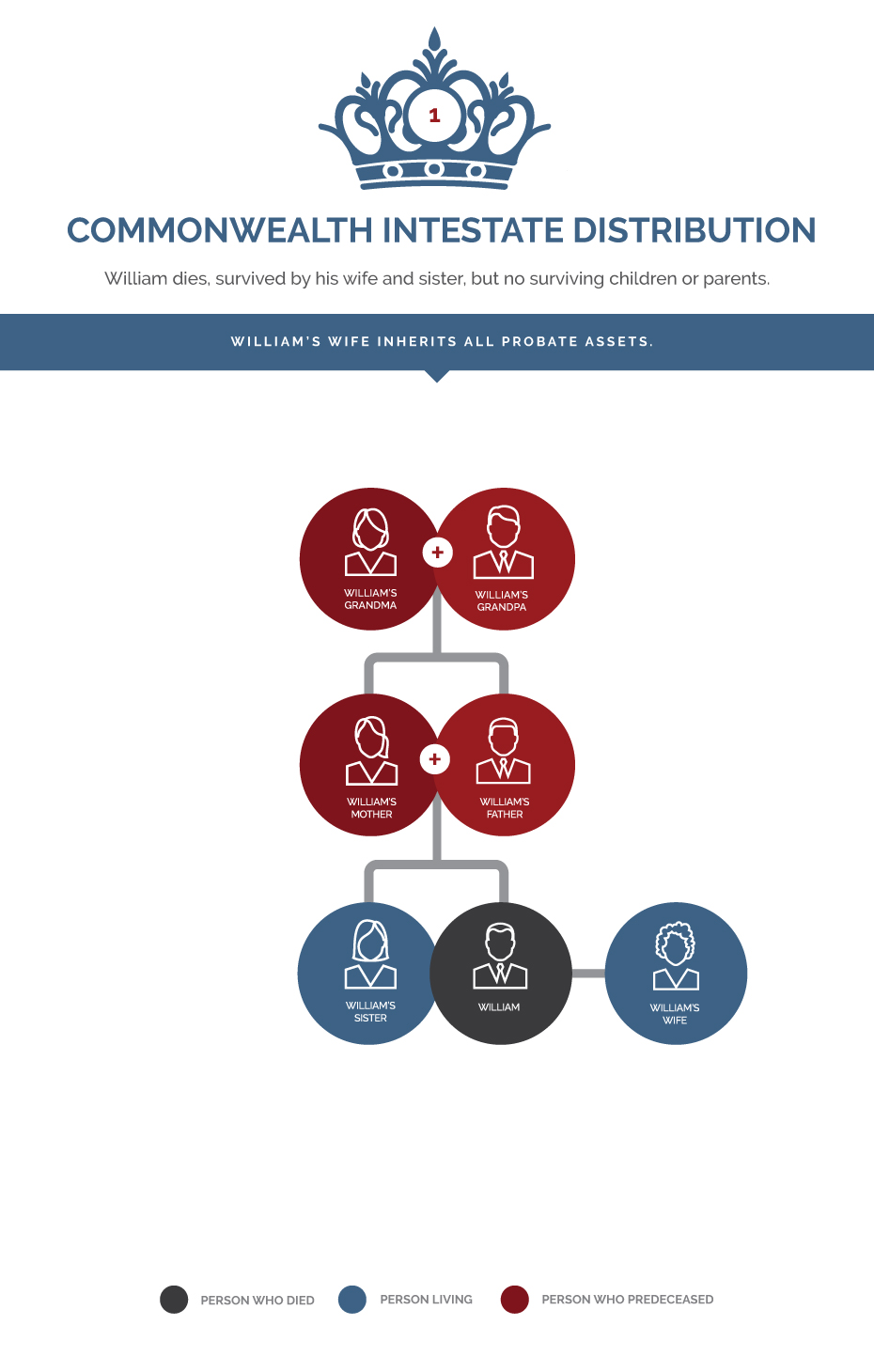
2 – Husband is married to his partner, both dice together in a auto accident, survived by their two adopted children. The surviving children each inherit equal half (1/two) shares of the probate manor of each decedent.
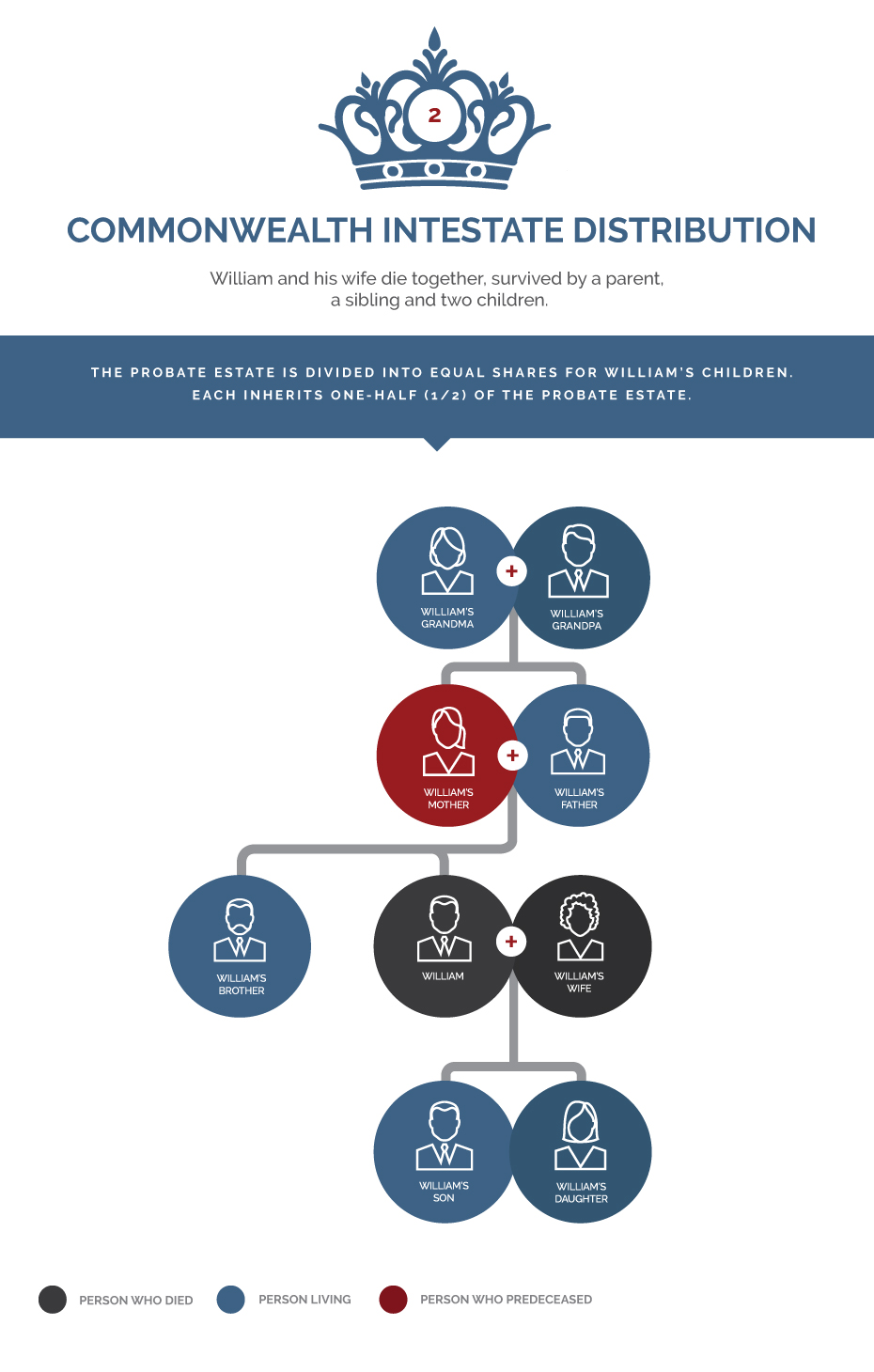
2.i – Husband and Wife are married, they die together in a car accident leaving ane surviving child and ii surviving grandchildren from a predeceased child.All probate avails of each decedent are divided into per stirpital shares at the child level. The surviving child inherits half (1/2) of the probate manor. The grandchildren dissever the remaining half (1/2); meaning each inherit a one-quarter (ane/four) of the probate estate.
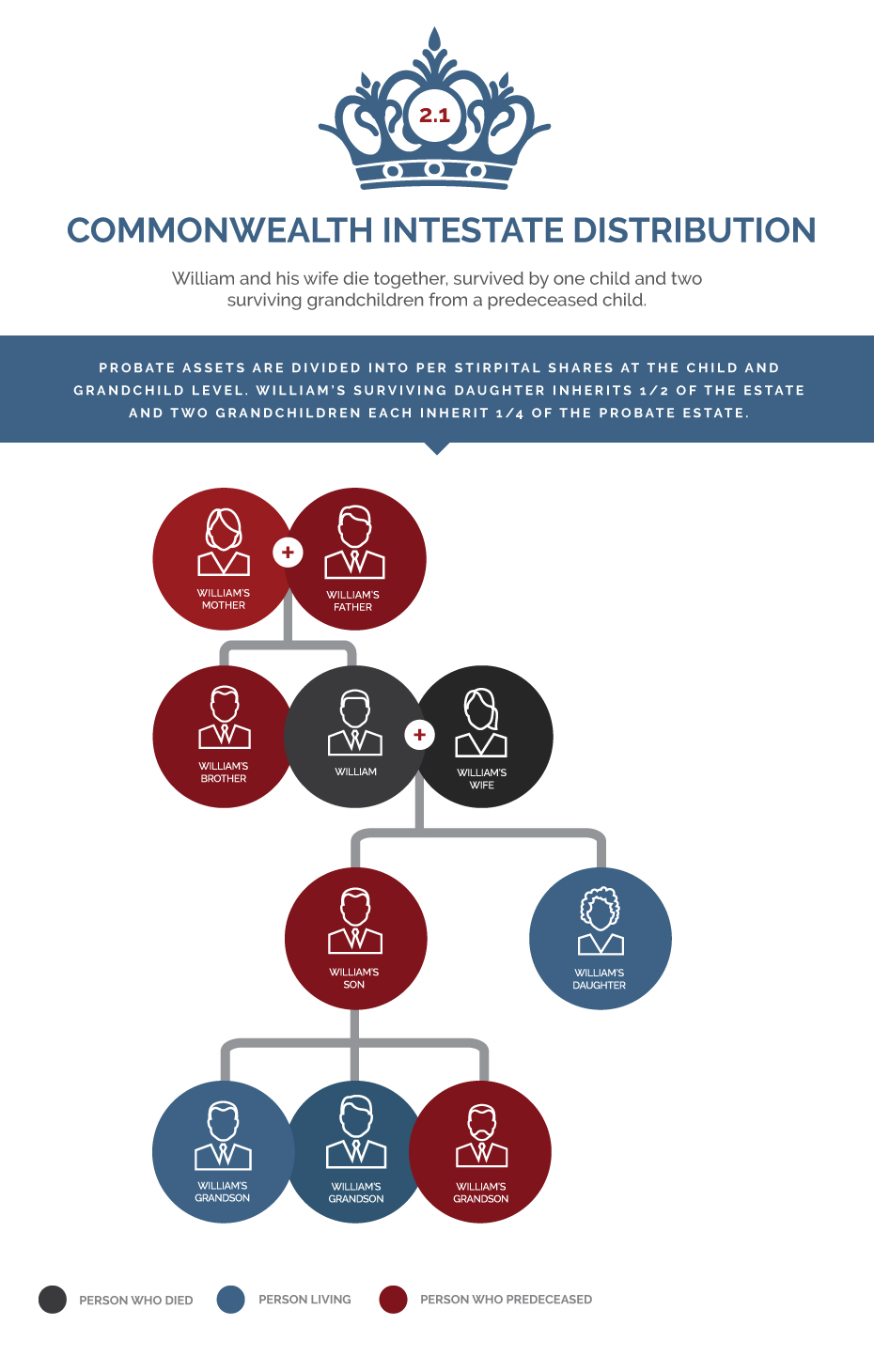
2.2 – Married man and Wife are married with and two sons, all dice together in car blow; one son survived by one daughter, i son survived by three sons. The probate avails of each decedent are divided into per stirpital shares at the grandchild level. The surviving grandchildren each inherit a 1-quarter (1/4) share of the probate manor.
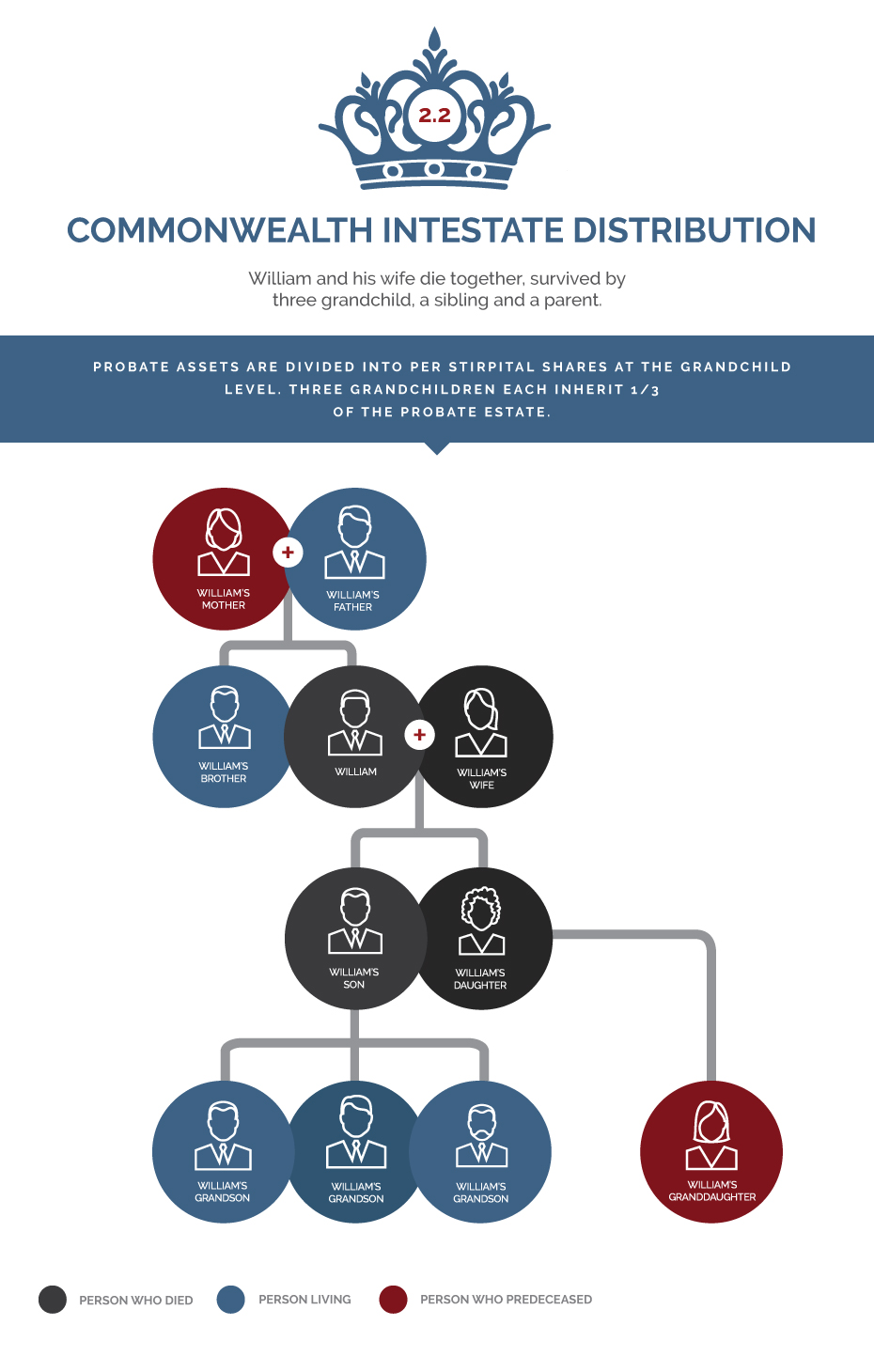
three – Man dies unmarried with no children, survived by both parents. The probate manor is divided equally among the surviving parents. Each parent inherits a one-half (1/2) share of the probate estate.
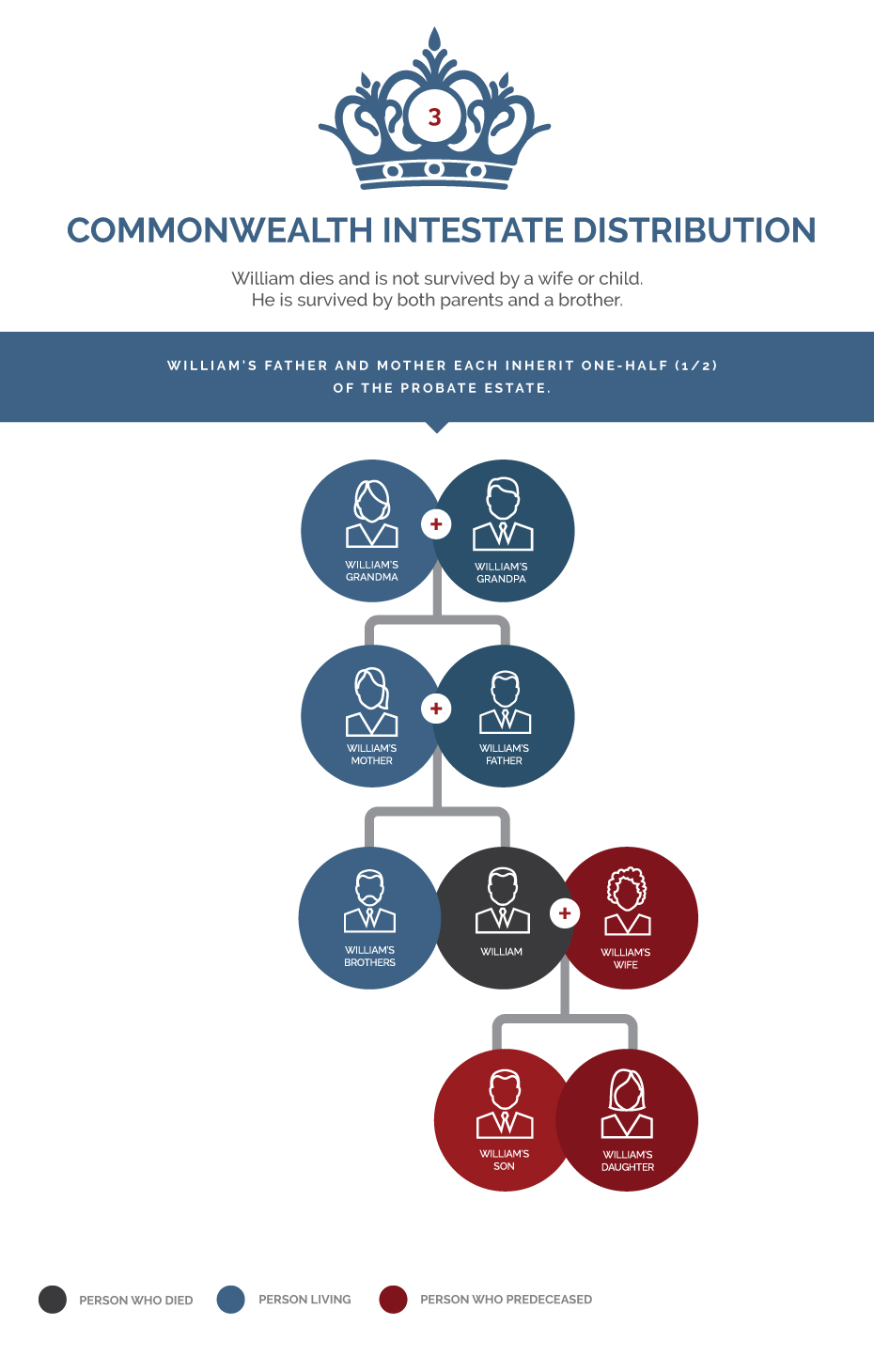
4 – Man dies survived past only a brother; no spouse, children or parents. The man'due south blood brother inherits the entire probate estate.
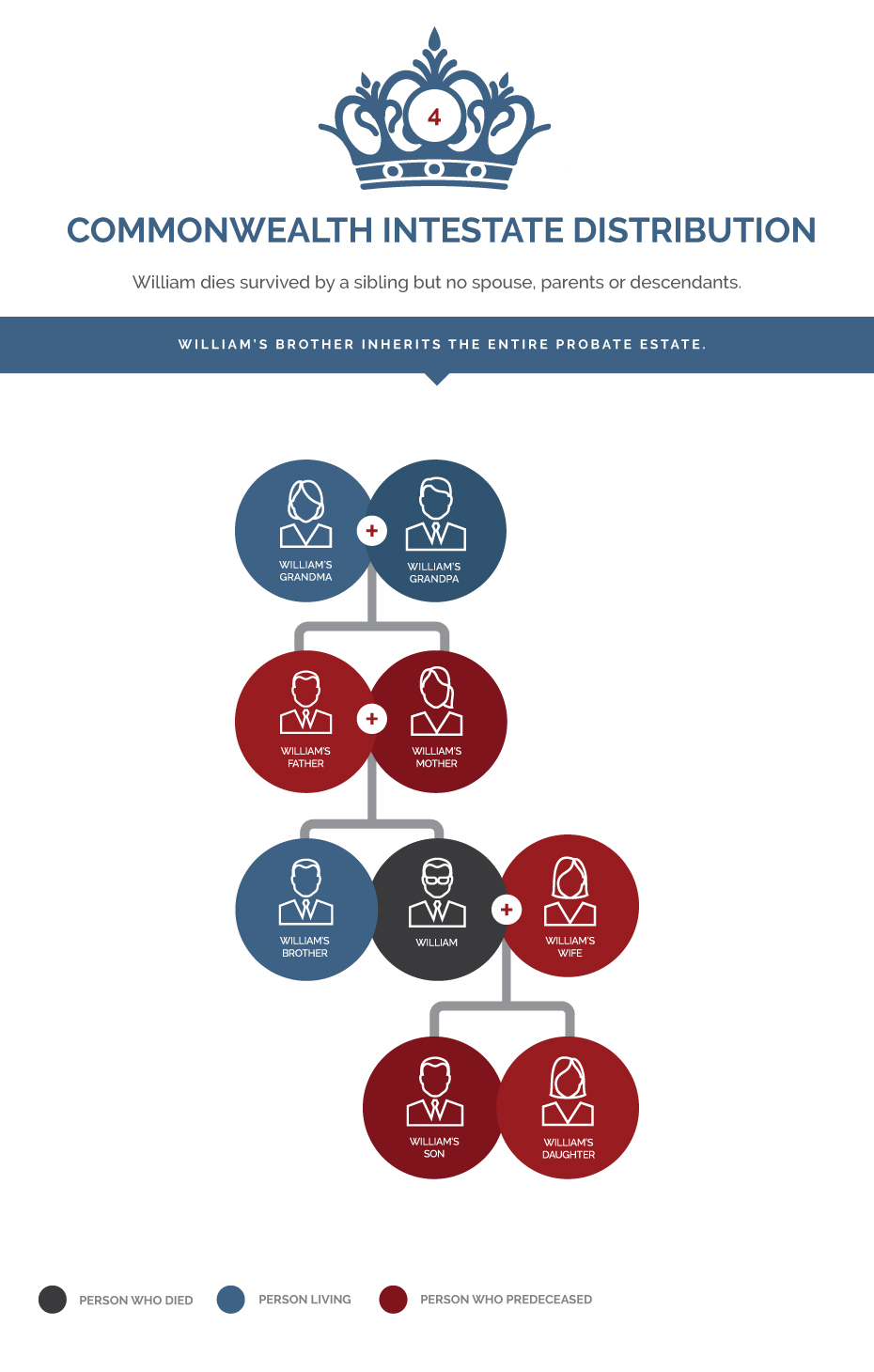
4.1 – Woman dies with surviving brother, two surviving nephews of some other predeceased brother, and no surviving spouse, children or parents. The probate estate is divided into per stirpital shares at the sibling level. The surviving brother inherits one-half (1/2) of the probate assets, the nephews dissever the remaining ane-half (1/ii), meaning each inherit a 1-quarter (one/4) share of the probate estate.
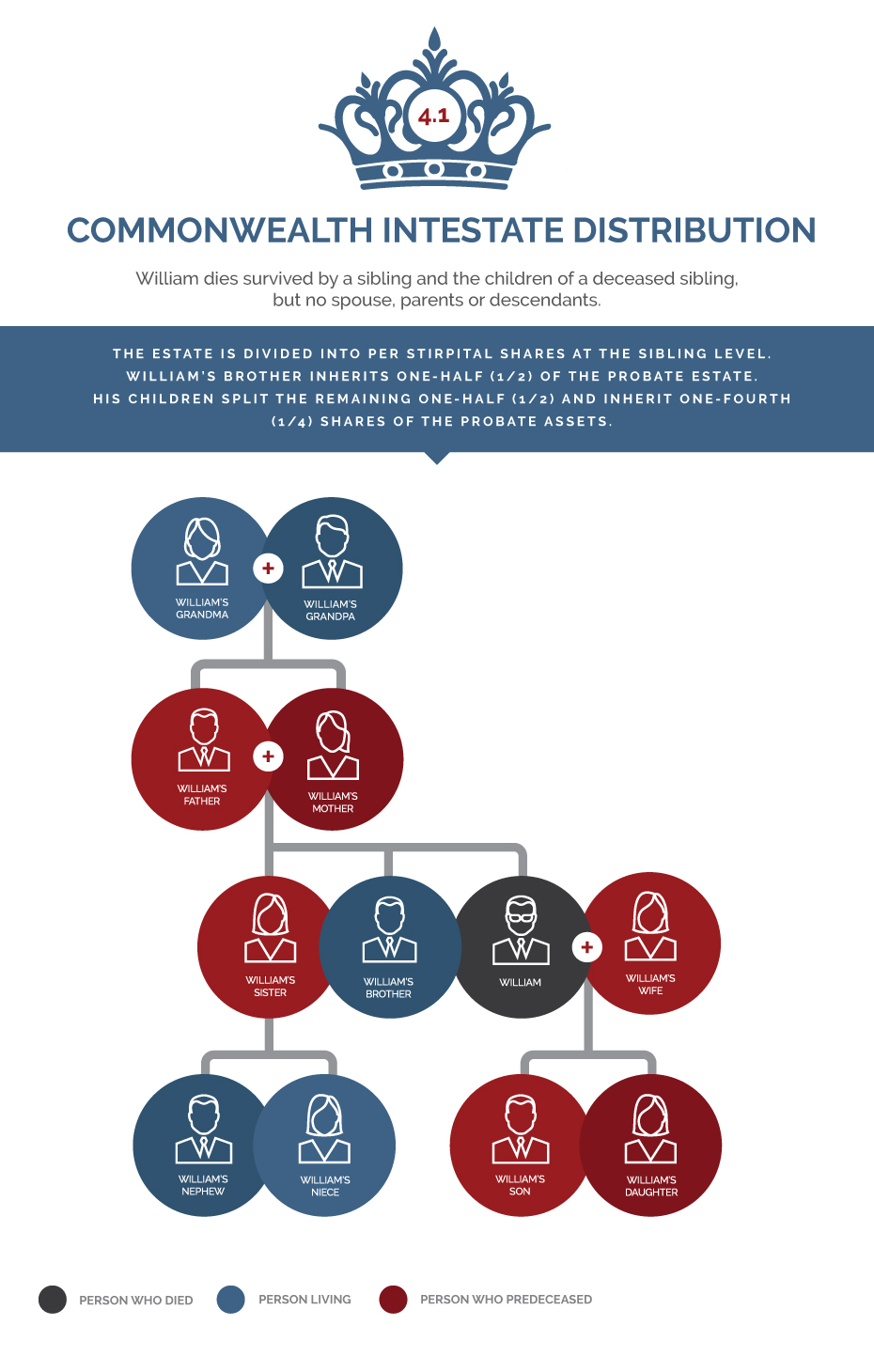
5 – Woman married to her partner, woman dies survived past her partner and both parents (no children). Contrary to popular belief, the surviving partner does non inherit the unabridged probate estate. The surviving spouse inherits the first thirty thousand dollars ($thirty,000) of probate avails and ane half (1/2) of the remaining probate estate. The remaining half (1/2) of the probate estate is divided into equal shares for the woman's surviving parents.
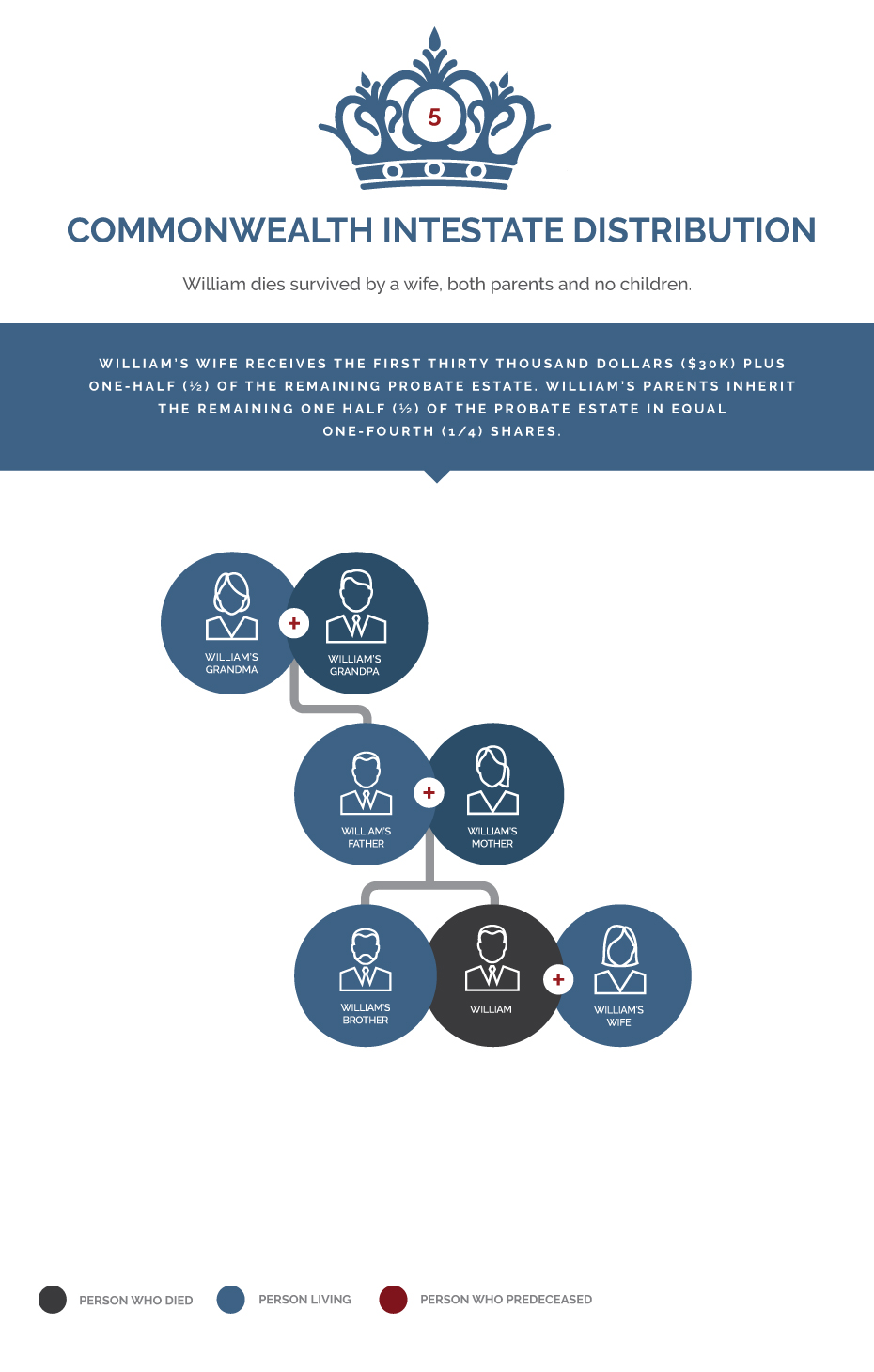
6 –Hubby and Wife are married, Husband dies with surviving spouse, their two children, and his parents. The surviving Wife inherits the first thirty thousand dollars ($30,000) of probate assets and half (one/2) of the remaining probate estate. The remaining half (1/2) of the probate manor is divided into per stirpital shares for the children (i/four share to each child).
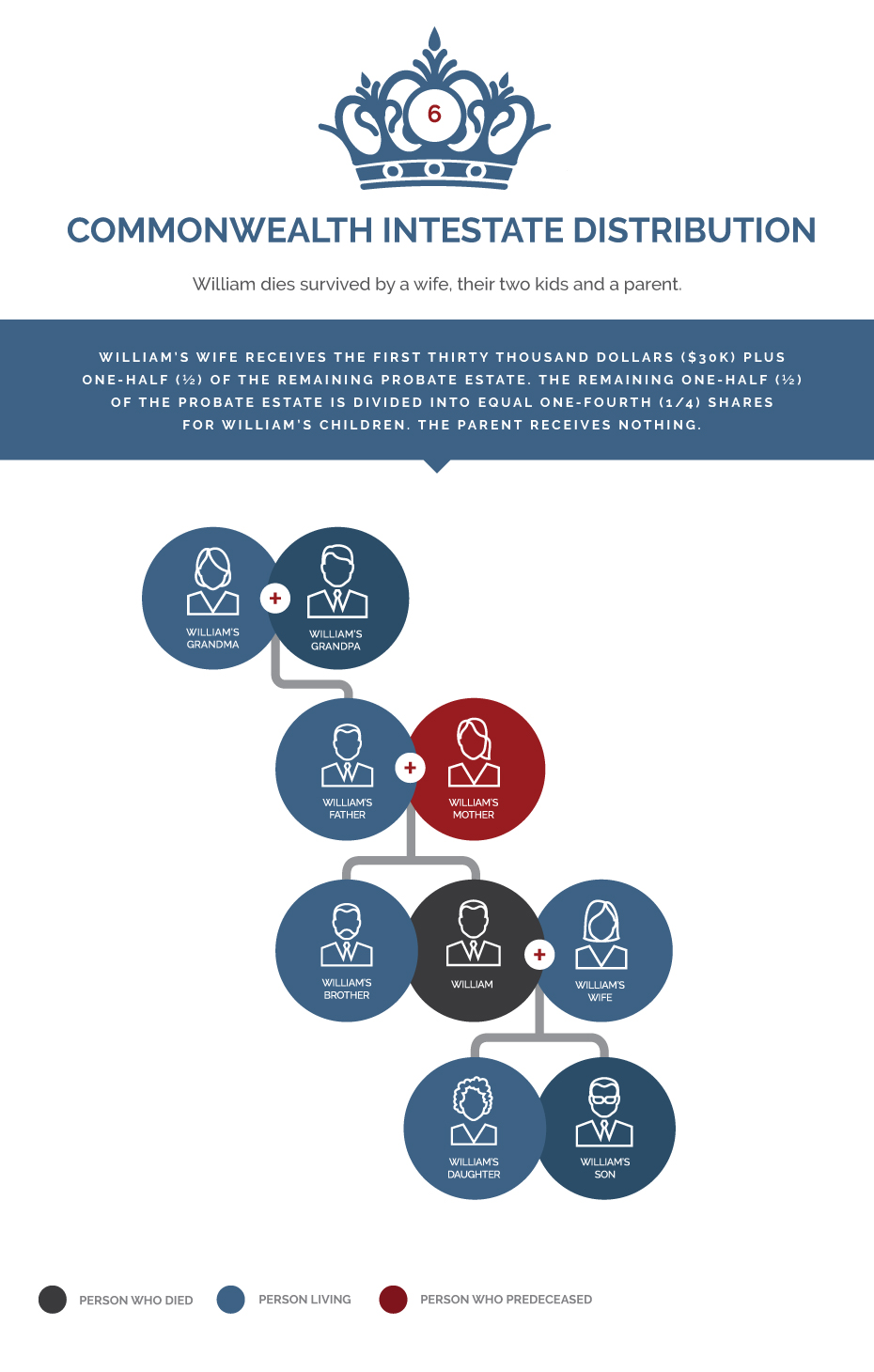
7 – Husband and Wife are married, Husband dies with surviving spouse, a child of both he and his Wife, and a kid of simply his Married woman's (stride-child). The surviving Wife inherits the first thirty thousand dollars ($xxx,000) of probate avails and one-half (½) of the remaining probate manor. The married man's surviving child inherits the remaining one-half (½) of the probate estate. The step-child receives nothing.
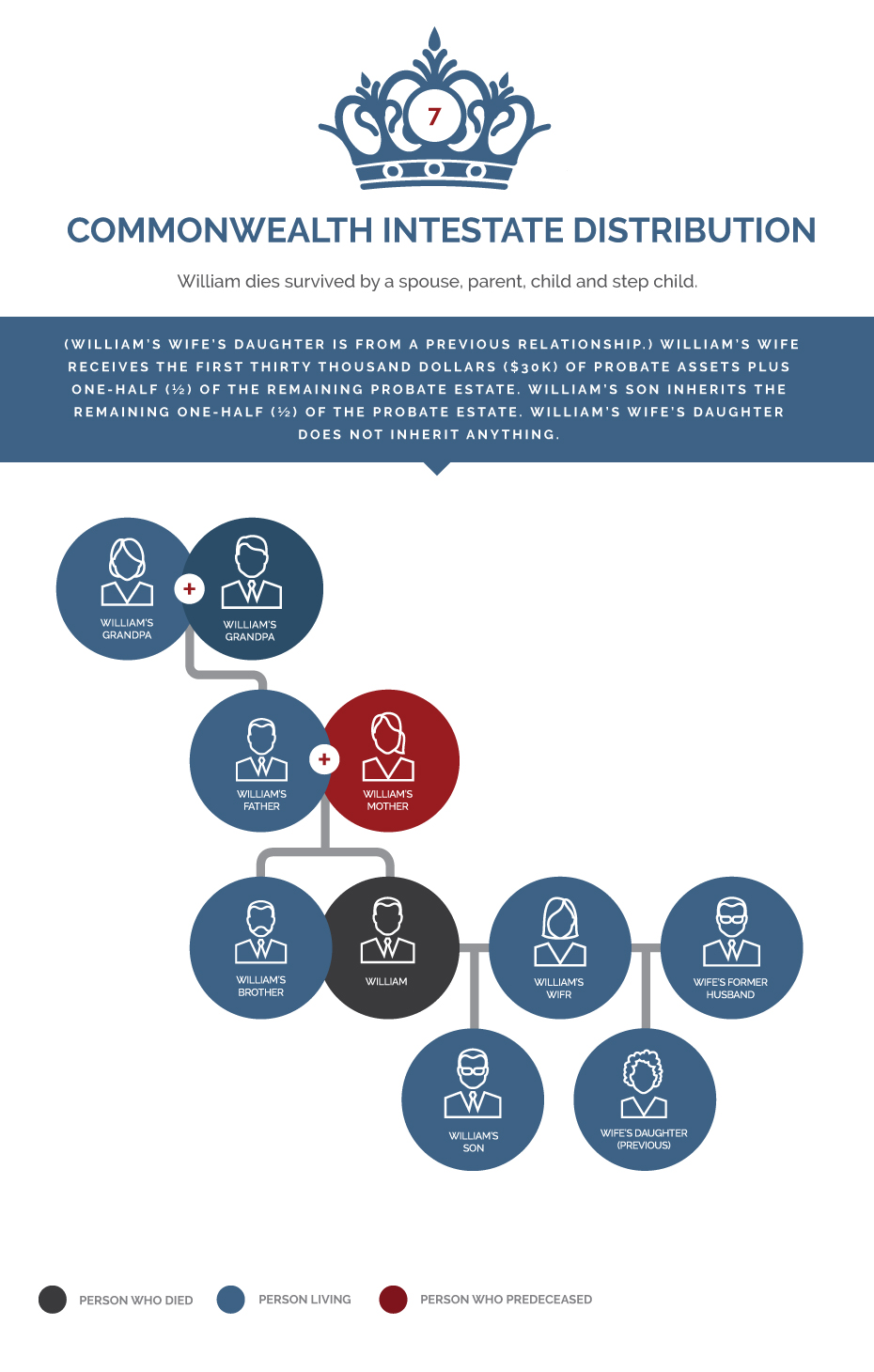
7.1 – Married man and Wife are married, Married man dies with surviving spouse, a child of both he and his Wife, and a child of his from a previous marriage.The surviving Wife inherits half (½) of the probate estate. The remaining one-half (½) is divided into per stirpital shares for the married man's children. The two children split the remaining one-half (1/2) and each inherit ane-quarter (1/4) of the probate estate. In this instance, the wife does not receive the get-go xxx thousand dollars ($30,000) because the hubby has a child from a previous relationship.
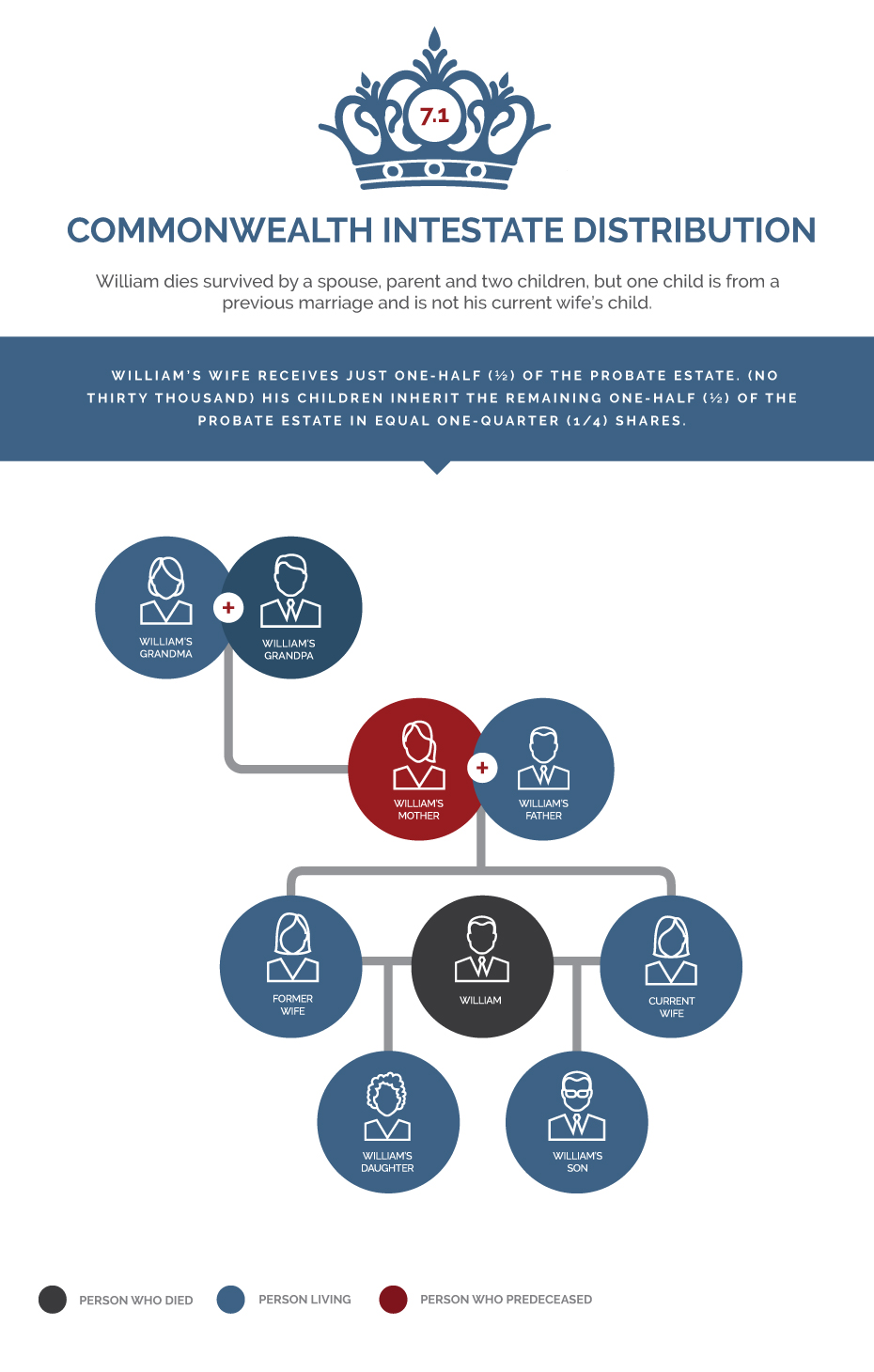
More Complex Examples; No Surviving Spouse or Descendants
This is where our analysis becomes catchy. As long equally there are living relatives of the decedent every bit distant as a child of a first cousin, the probate manor is inherited past a relative. Otherwise, the probate manor passes to the Democracy of Pennsylvania.
The first step of the analysis is to divide the probate estate into two equal shares; one for the maternal grandparents (and their descendants) and one for the paternal grandparents (and their descendants). Notation: If there are no surviving relatives every bit shut as a grandchild of a grandparent on the maternal side, but at that place are on the paternal side, no segmentation takes place, and the estate passes entirely to the paternal side of the family and vice versa. In some examples, the discussion takes place solely on the paternal side withal the same analysis is necessary on the maternal side.
8 – Man dies with both surviving maternal and paternal grandparents, only no spouse, children, parents or siblings. The probate estate is divided into equal one-half (1/2) shares, ane for each of the maternal and paternal side of the family. Each grandparent inherits an equal ane-quaternary (1/iv) share of the probate manor.
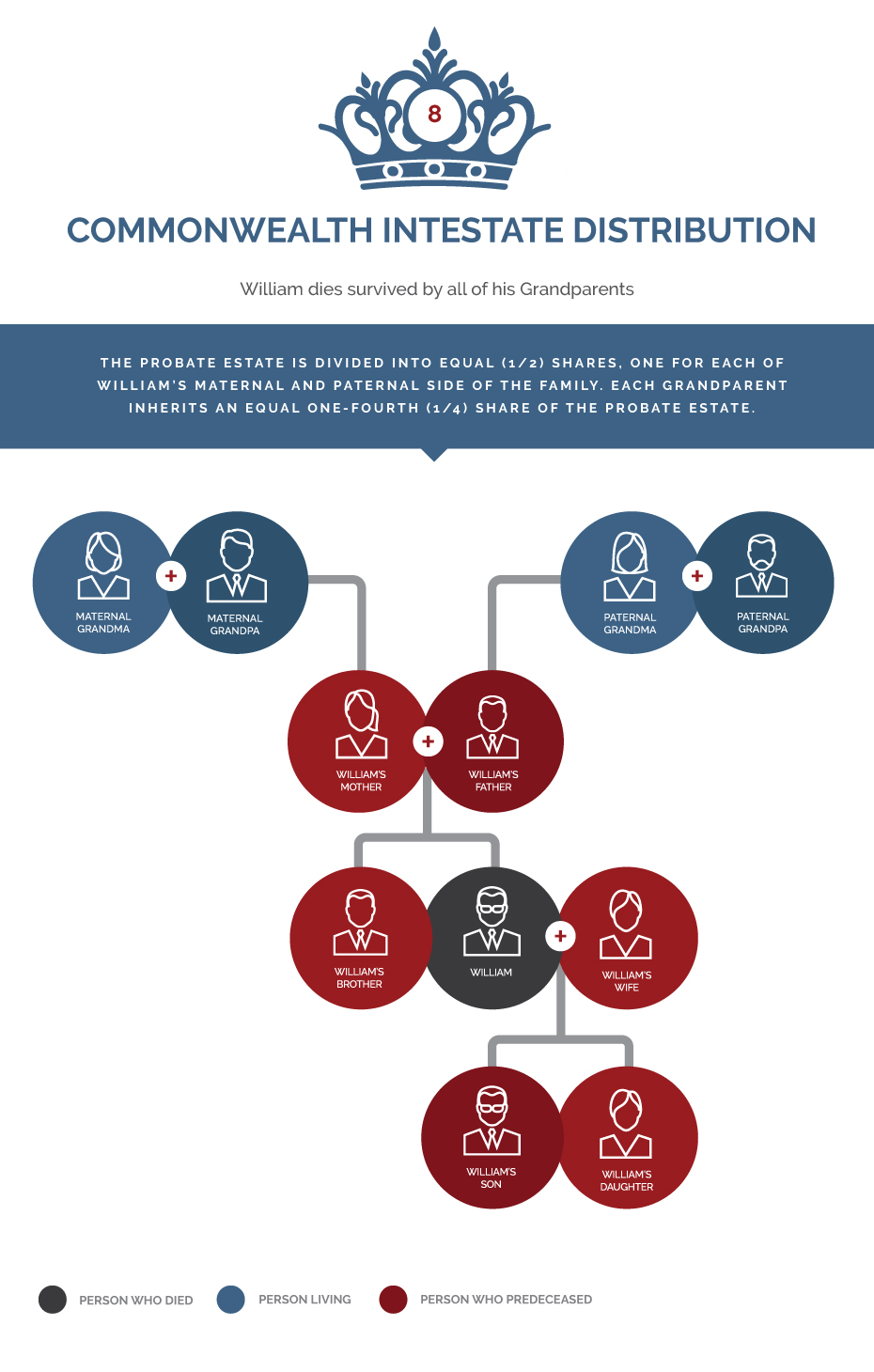
8.1 – Human dies with both surviving paternal grandparents (two) one surviving maternal grandparent (ane), but no spouse, children, parents or siblings. The maternal grandparent inherits one-half (i/ii) of the probate estate. The remaining half (1/2) is divided into equal shares for the paternal grandparents, each receive a 1-quaternary (1/4) share of the probate estate.
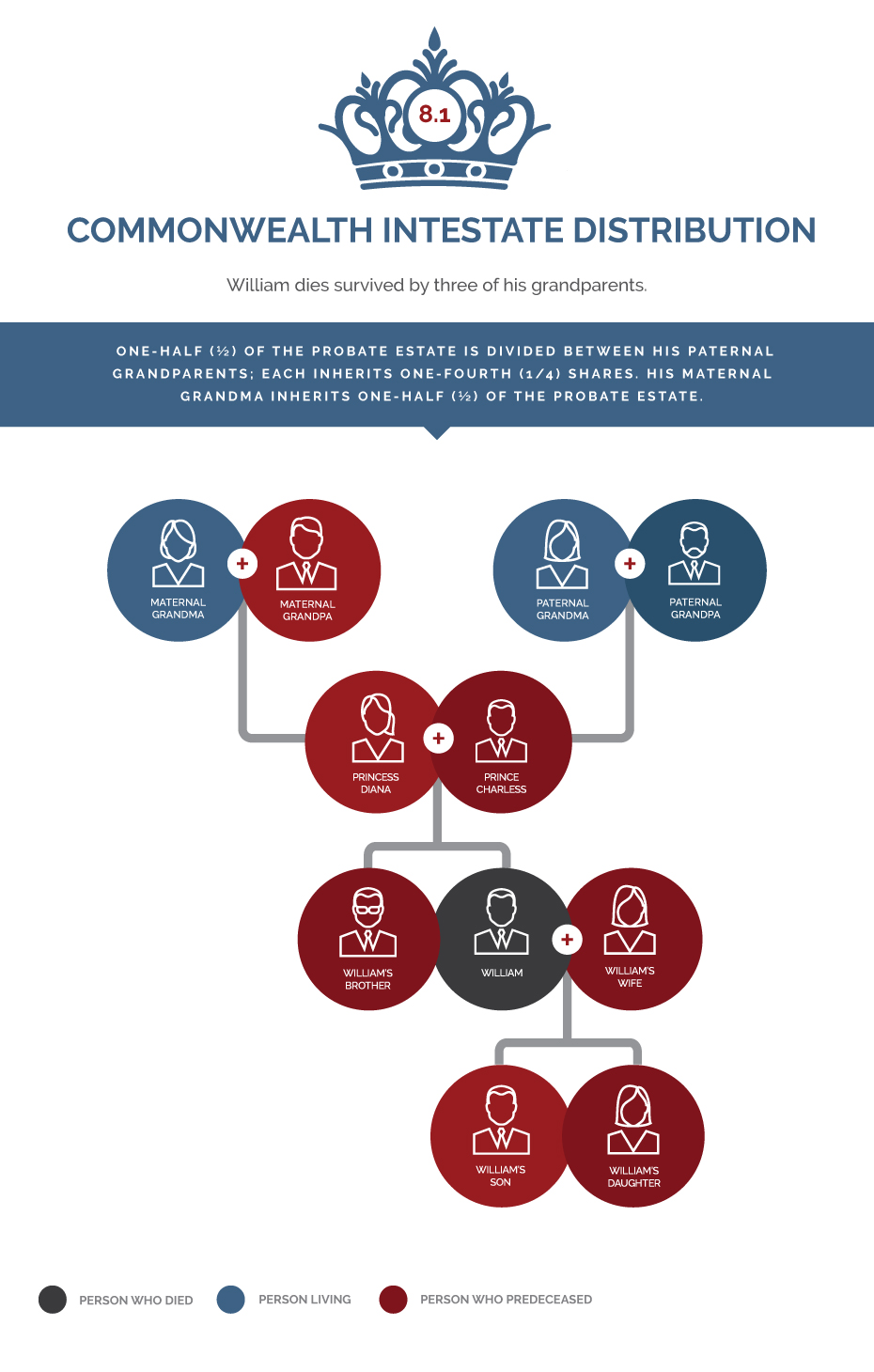
9 – Man dies with i surviving uncle, but no spouse, children, parents or siblings or grandparents. The maternal and paternal shares of the probate estate are divided into per stirpital shares at the uncle level; the sole surviving uncle inherits the entire probate estate regardless of whether he is a maternal or paternal uncle.
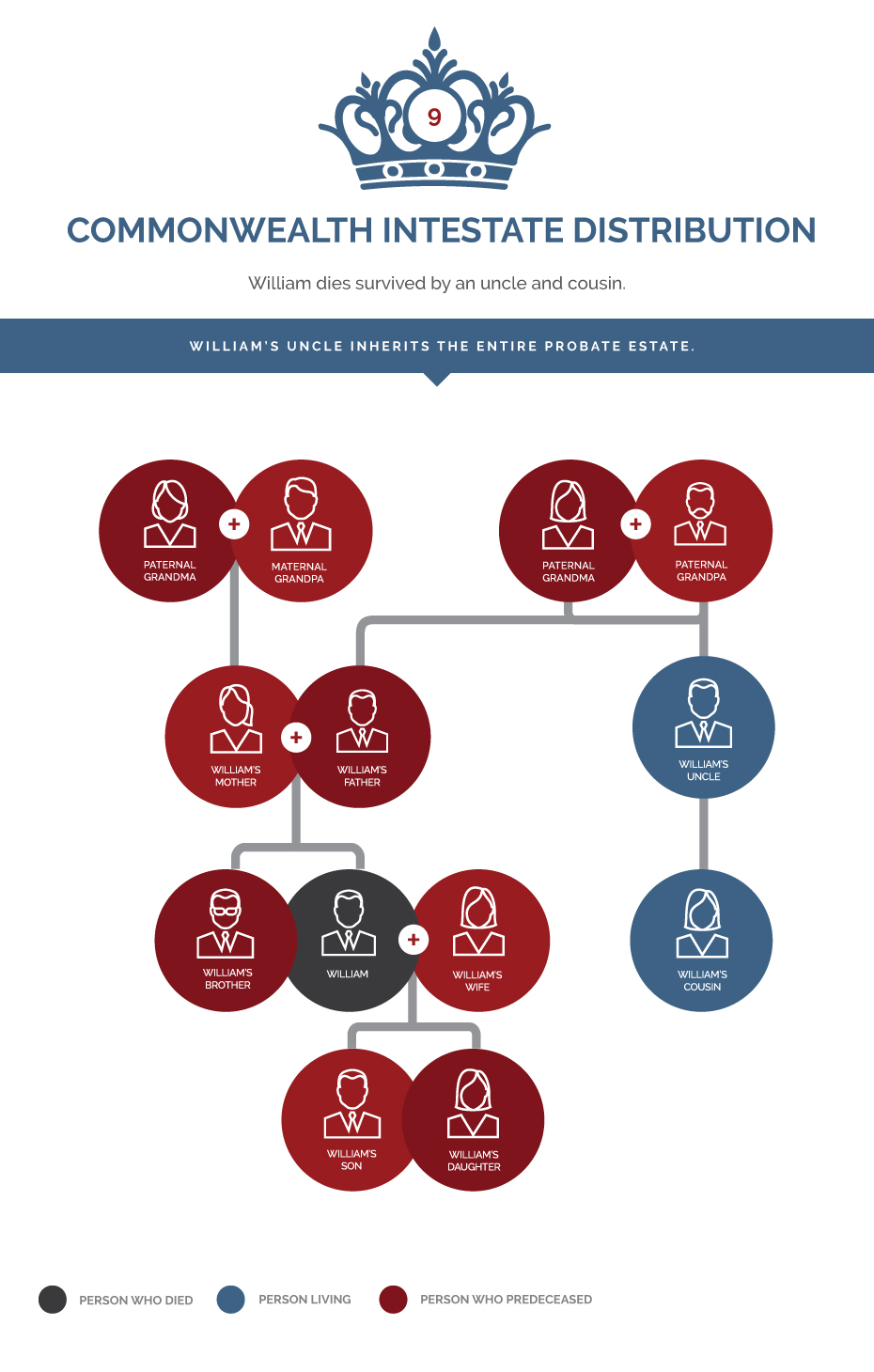
9.1 –Same scenario as above except one uncle predeceases the man, leaving a surviving kid (the human's cousin). The cousin inherits the entire probate estate.
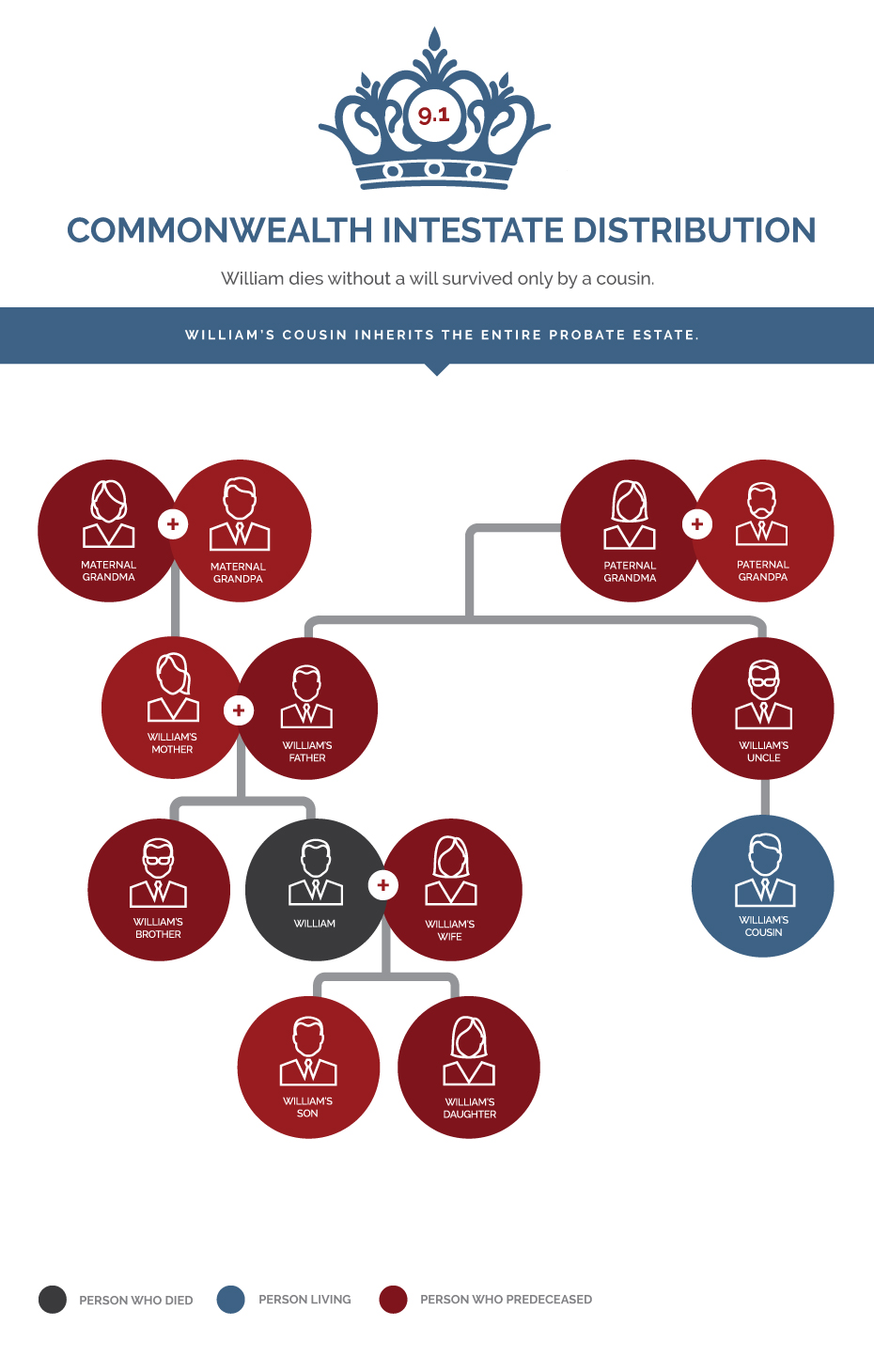
10 – Man dies with three surviving grandchildren of his paternal grandparents (1st cousins), merely no spouse, children, parents or siblings or grandparents, aunts, or uncles; If there are living paternal grandchildren (1st cousins), probate estate is divided into three equal one-third (one/iii) shares among them, regardless of whether at that place are surviving paternal great-grandchildren.
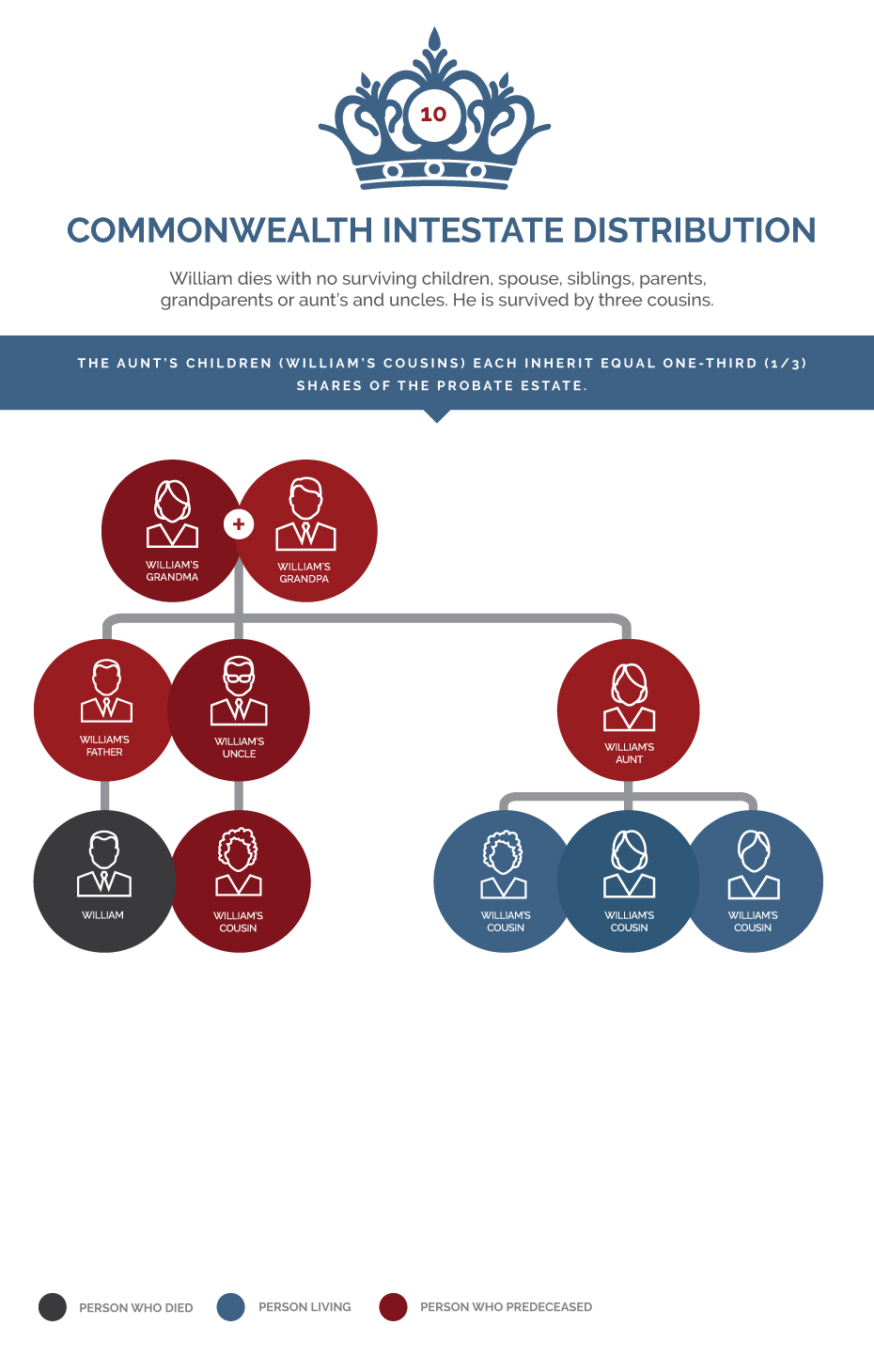
10.1 – Man dies with two surviving grandchildren of his paternal grandparents (1st cousins) and one surviving smashing-grandchild of his paternal grandparents, but no spouse, children, parents or siblings or grandparents, aunts, or uncles; At no fourth dimension can a share pass both to a grandchild of a paternal grandparent (1st cousin) and a nifty-grandchild of a paternal grandparent (1st cousin'southward child). A great-grandchild can only inherit if they are the closest remaining relative to the deceased. The unabridged probate estate is divided into ii (one/two) shares for the surviving grandchildren.
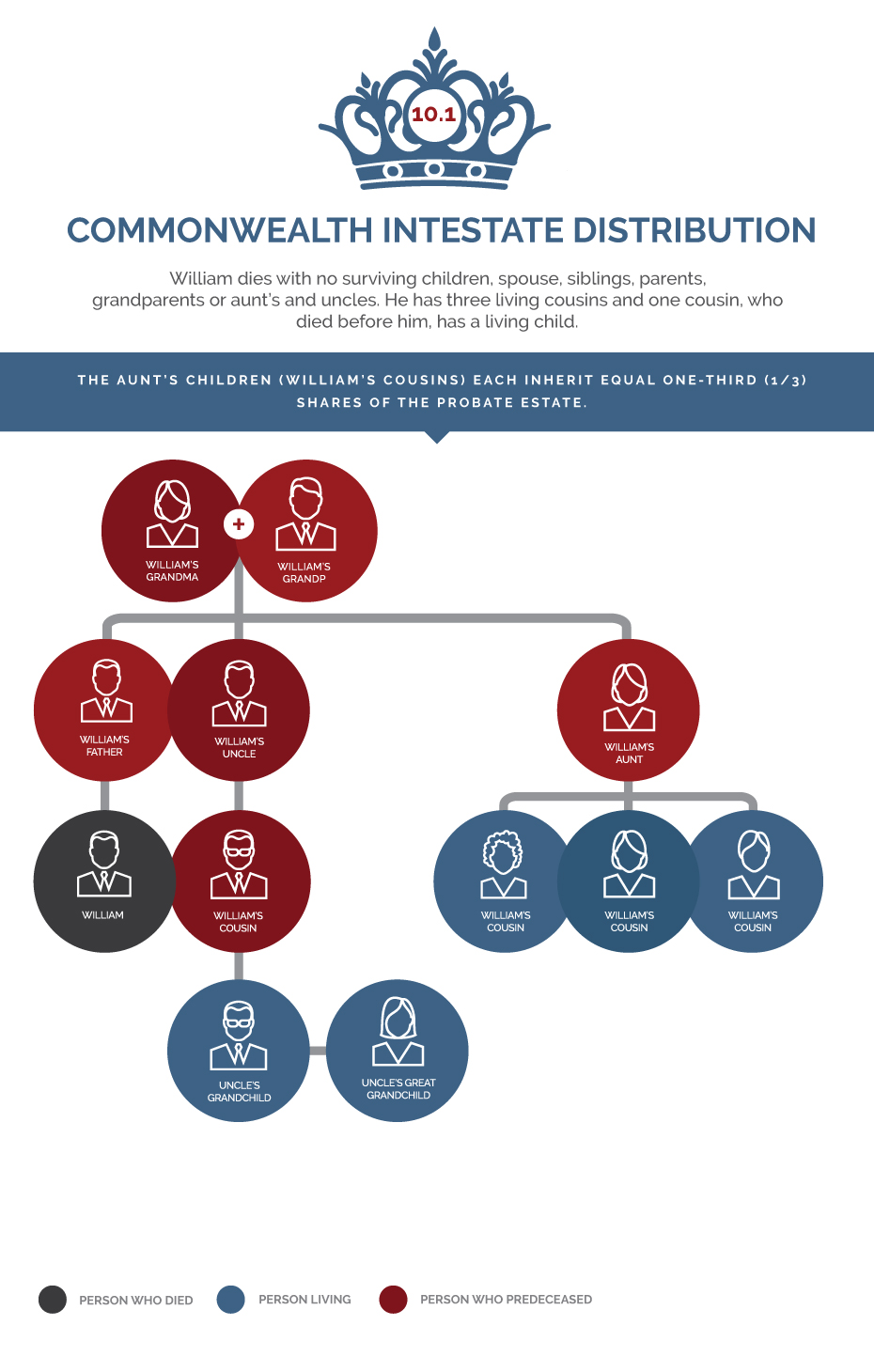
11 – Man dies with no surviving spouse, children, parents, grandparents, aunts, uncles, or grandchildren of grandparents, or not bad-grandchildren of grandparents; The unabridged probate estate goes to the Democracy of Pennsylvania.
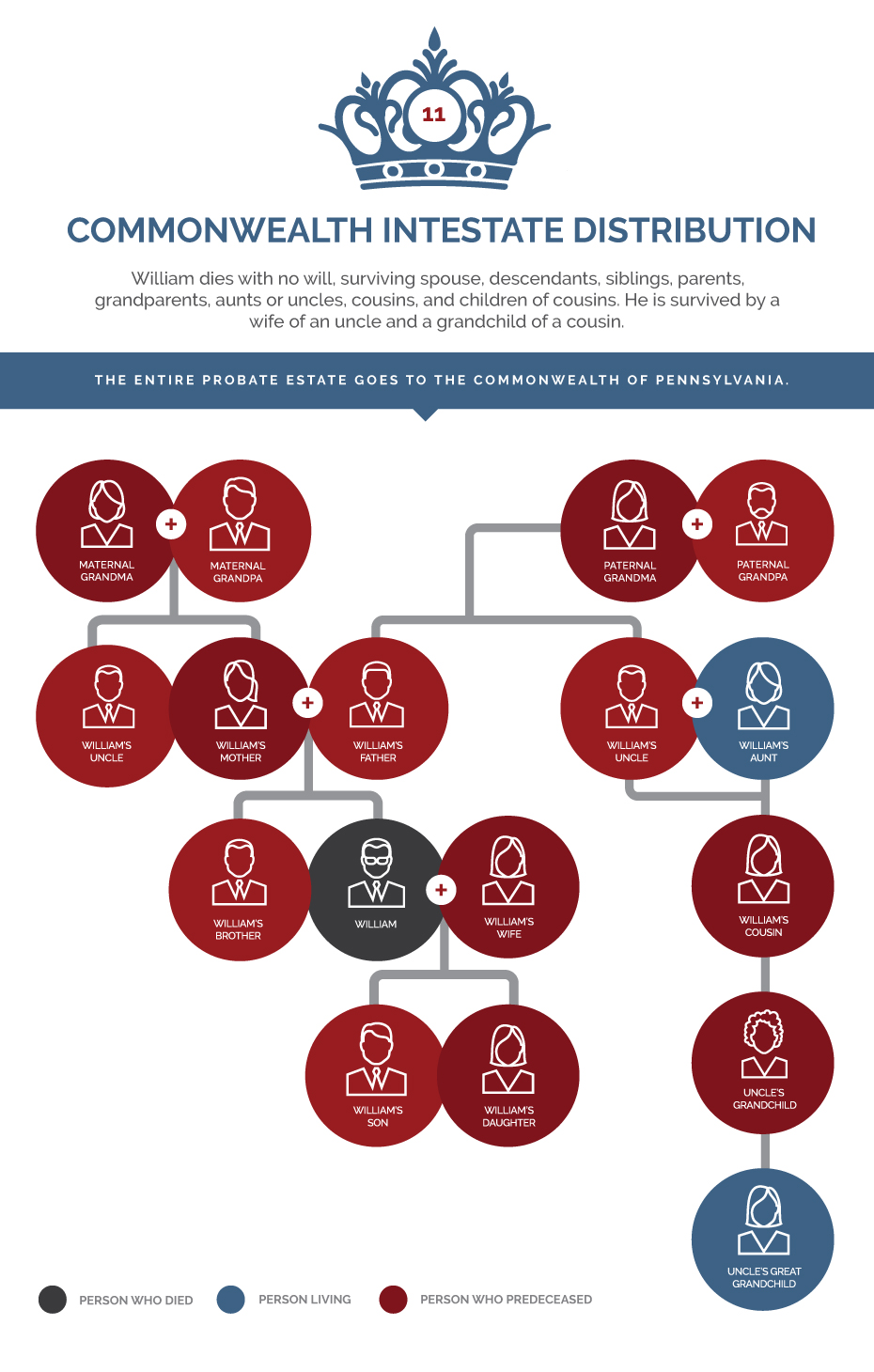
I hope this review of a complicated subject has been helpful to y'all. If you take further questions well-nigh intestate succession in Pennsylvania, feel free to contact us for a gratis consultation with ane of our Pennsylvania Probate Lawyers.
Disclaimer: The contents of this website are intended to convey general information simply and non to provide legal advice or opinions. The contents of this website, and the posting and viewing of the information on this website, should non exist construed as, and should not be relied upon for, legal or tax advice in any item circumstance or fact situation. The information presented on this website may non reflect the about electric current legal developments. Further, this website may comprise technical inaccuracies or typographical errors. No activeness should be taken in reliance on the data contained on this website and we disclaim all liability in respect to actions taken or not taken based on whatever or all of the contents of this site to the fullest extent permitted by police force. An attorney should be contacted for advice on specific legal issues.



















0 Response to "If 2 Parents Die In Pa Without A Will What Happens To Their Children And Money?"
Post a Comment